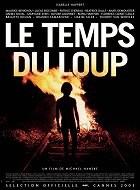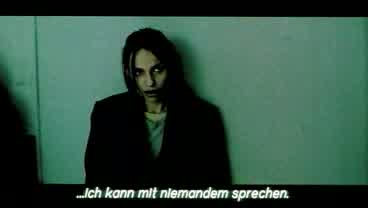Regie:
Michael HanekeDrehbuch:
Michael HanekeKamera:
Jürgen JürgesBesetzung:
Isabelle Huppert, Béatrice Dalle, Patrice Chéreau, Rona Hartner, Maurice Bénichou, Olivier Gourmet, Luminița Gheorghiu, Anaïs Demoustier (mehr)Inhalte(1)
Als Anne und ihre Familie in ihrem Ferienhaus ankommen, finden sie Fremde darin vor. Diese Konfrontation ist nur der Beginn eines schmerzlichen Lernprozesses: nichts ist mehr, wie es war. Was als Familiengeschichte beginnt, entwickelt sich schnell zur kollektiven Tragödie. Aber es ist auch eine Legende, also die Geschichte eines Opfers und, vielleicht, die Geschichte eines Heiligen. (Verleiher-Text)
(mehr)Kritiken (1)
So far, this is the weakest Haneke film I've seen. Unlikable characters navigate their dull struggles in an uninteresting post-apocalyptic world, occasionally engaging in tedious philosophical debates. I can't fathom why Haneke felt the need to make this. From a filmmaker of his caliber, I expected that if he ventured into this genre, he would bring something truly unique to the table. If his goal was to create an anti-sci-fi film, as I've heard, he definitely missed the mark. Comparing this to Tarkovsky’s Solaris, where space sci-fi is used to explore profound themes, the disparity is glaring. Tarkovsky managed to transcend genre boundaries – even if he claimed otherwise – and crafted something exceptional. He achieved this even more effectively in Stalker. Haneke’s Time of the Wolf doesn’t measure up; it contains some of his signature elements but ultimately fails to stand out in the post-apocalyptic genre. It ends up being just another ordinary entry, which is a huge missed opportunity for Haneke. A "post-apocalyptic film by Michael Haneke" sounds tantalizing on paper, but the final product feels like an undercooked, mediocre dish. I've seen far better post-apocalyptic films from much lesser directors. But hey, even the best make mistakes, and I forgive this misstep from the master.
()

